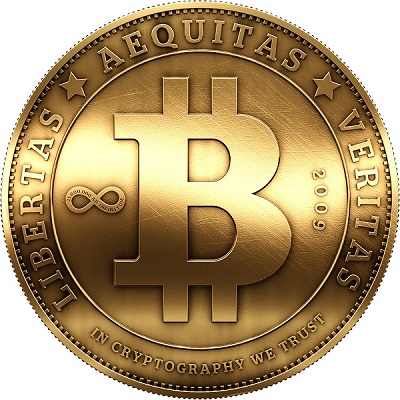
The Role of Bitcoin in Decentralised Finance
When it launched in 2009, Bitcoin was the first truly global decentralised digital currency. It also introduced blockchain technology to the world, which provided investors with a secure and transparent way of recording their buying and selling activities.
More than 15 years later, it remains the most popular cryptocurrency, with over 730,000 transactions taking place across the network on a daily basis, and its influence within the sphere of decentralised finance (DeFi) is constantly growing.
Yet many people are still not familiar with Bitcoin or, indeed, what decentralised finance is.
So, we thought we’d put together this post to provide a general overview of the role it plays within it.
What is Bitcoin?
Bitcoin is a decentralised digital currency that operates without a central authority. This means that, unlike paper money, no single entity, such as a government or bank, has control over the entire network.
Instead, it operates through a peer-to-peer network that is powered by blockchain technology, through which, all transactions are recorded on a secure and transparent ledger. This is done via an intricate and complicated cryptography, which is designed to safeguard the integrity of the distributed network.
Bitcoin has a limited supply of only 21 million coins, which makes it a deflationary asset.
Due to its relative scarcity and the fact that it can be sent and received all over the world, this type of cryptocurrency enjoys a substantial value – as evidenced by the high Bitcoin price currently associated with it.
What is DeFi?
DeFi is a shortened term for the phrase ‘decentralised finance’ and broadly refers to a number of financial applications that have been developed on blockchain networks.
The aim of these applications is to facilitate acts like borrowing, lending, insurance, and trading in a more open, transparent, and decentralised way than traditional financial systems are perceived to do so.
One of the key differences between DeFi and traditional finance is that the former does not use intermediaries. Instead they rely on smart contracts, which are self-executing contracts where the terms of the agreement are directly written and automatically actioned into code.
What is Bitcoin’s Relationship with Decentralized Finance?
At first, Bitcoin and decentralised finance operated in independent realms within the cryptocurrency ecosystem.
While Bitcoin was predominantly viewed as a medium for exchange and a store of value, DeFi applications flourished on blockchain, such as Ethereum, which was considered much more versatile for creating smart contracts. However, in recent years, Bitcoin’s integration into DeFi has been snowballing.
A number of protocols and projects have been introduced to successfully integrate Bitcoin’s liquidity into the overall decentralised finance system. One has been Wrapped Bitcoin (wBTC), which is an ERC-20 token that is backed 1:1 by Bitcoin on the Ethereum blockchain. Essentially, it allows holders of Bitcoin to use their BTC for trading, borrowing, or lending within the DeFi ecosystem’s Ethereum-associated applications.
Another is the Lightning Network, which aims to enhance Bitcoin’s transaction speed and scalability on DeFi platforms.
What are the Benefits of Bitcoin in DeFi?
With Bitcoin increasingly being integrated into decentralised finance, it offers users several imported benefits.
Firstly, Bitcoin has a massive market capitalisation, and its overwhelming popularity affords both stability and liquidity to DeFi platforms, which in turn, strengthens the reliability of these platforms and creates increased trust among users.
It also improves security as Bitcoin’s blockchain is considered to be extremely secure (as of the time of writing, it has never been hacked), and enables BTC holders to diversify their investment portfolios by taking part in several DeFi activities, such as yield farming and staking, that could result in them enjoying much higher returns, in comparison to them just holding Bitcoin.
What are the Risks and Challenges of Bitcoin in Decentralized Finance?
Despite the notable advantages, it is necessary to point out that there are still some challenges and risks associated with incorporating Bitcoin into decentralised finance.
For instance, smart contracts are integral to DeFi applications. However, if they are not audited properly, they can be susceptible to exploitation and bugs. Therefore, given that blockchain transactions are reversible, fraudulent acts and vulnerabilities could potentially result in major financial losses for BTC holders.
Additionally, as the regulatory environment for DeFi and crypto are still evolving, there is a threat of unfavourable policies being introduced and regular crackdowns put in place that may influence the degree to which Bitcoin grows and is adopted within DeFi.
Another issue Bitcoin has to overcome is that while it is very secure, it does have limited scalability at present, which can result in higher fees and slow transaction times when demand is high. As mentioned previously, the introduction of the Lightning Network was designed to address these challenges. But it is still very much a work in progress.
Final Thought
For all these potential negatives, there is no doubt that Bitcoin is being increasingly embraced within decentralised finance, thanks largely to growing interest among users and new innovations relating to cross-chain interoperability solutions.
It seems, then, only fair to conclude that as we move forward over the next few years, Bitcoin will more seamlessly be able to connect with numerous DeFi ecosystems, which will only serve to increase the number of people who are trading it in.


